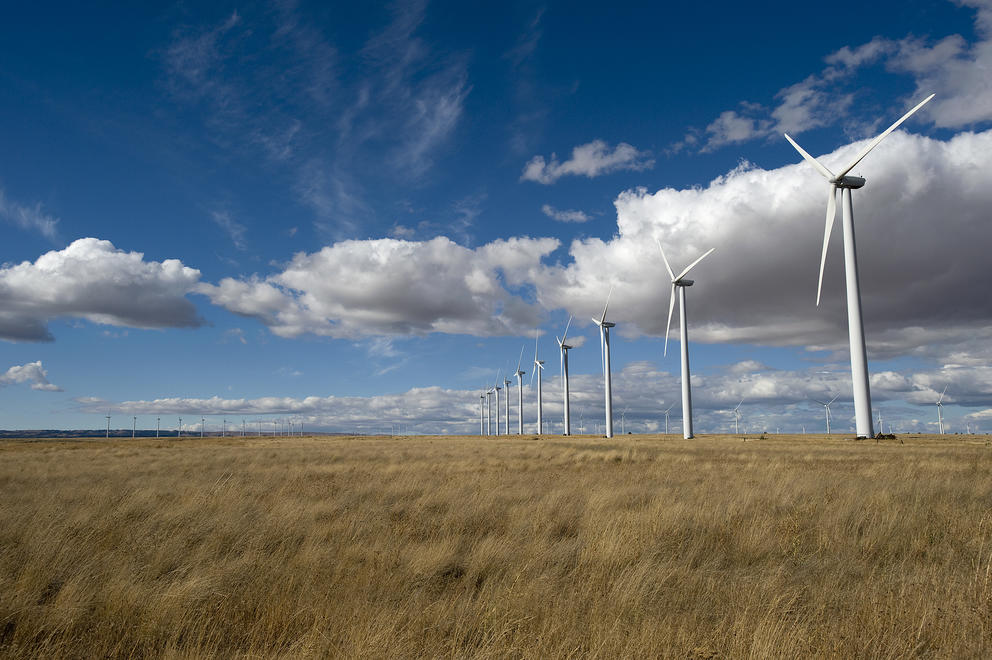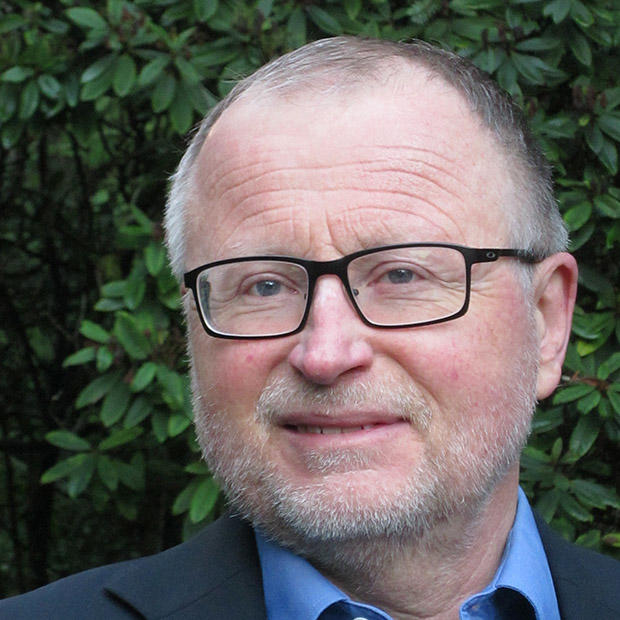And with climate-focused Gov. Jay Inslee urging action by like-minded Democrats in charge of the Legislature, passage seems likely for legislation aimed at reducing the effect of Washington’s electric grid on global warming.
“For the first time in my memory — and maybe ever — climate change is a top priority for the Washington Legislature,” wrote Kelly Hall, Washington policy manager at the environmental group Climate Solutions, in a recent blog post.
Yet private utilities, Republican lawmakers and others skeptical of the greenhouse gas cuts envisioned by Democrats are urging a go-slow approach. The question is whether they can secure some leeway in deadlines to cut off climate-warming emissions.
Two bills in the House and Senate requested by Inslee would push all state utilities off coal-fired power — the most climate-unfriendly major electric fuel in the mix — by 2025. They would also require 80 percent fossil-fuel-free electricity by 2030 and a complete phaseout of climate-warming power plants by 2045 in favor of wind, solar, hydroelectricity or other noncarbon-emitting fuel sources, including nuclear and geothermal.
The House bill contains a total prohibition on climate-unfriendly fuels. But the Senate bill has some wiggle room if a power provider can’t get off carbon fuels “due to reasons beyond the reasonable control” of the utility.
If the Democrats are successful, they will have established Washington’s first price on carbon pollution, even though it would not kick in until utilities have to start paying for offsets in 2030. Washington voters in recent years rejected two initiatives to establish taxes or fees on various forms of carbon pollution much sooner.
Other states are ahead of Washington in charging greenhouse gas emitters a fee. In California it’s about $15 per metric ton, while utilities in nine Northeastern states pay about $3 per ton.
Hawaii, meanwhile, has committed to a fully carbon-free grid by 2045, although it has not yet spelled out exactly how the state will achieve that.
Inslee and his legislative allies argue that the legislation is essential if the state is to scale back its greenhouse gas emissions in sync with global efforts to reduce the impact of climate change and to spur innovation.
But minority Republicans and representatives of the state's three major private utilities are less certain, and they've been urging caution — if not opposing — the emerging policy to require carbon-neutral electricity in the coming years.
A key focus of the debate is natural gas unleashed through hydraulic fracturing, or “fracking.” It has been a huge boon as the United States sought to reduce carbon emissions in recent years. Natural gas has served as a so-called lower-carbon “bridge fuel” to a carbon-free future. Now climate campaigners say it’s time to start crossing the bridge. But not everyone is willing to make that passage so quickly. "What Washington state's going to do here — is it going to make any real difference on world climate?" asks state Sen. Doug Ericksen, R-Ferndale.
Ericksen, whose district includes two oil refineries, paints the emerging Senate policy as “radical.” He says — based on current technology — it would guarantee electricity brownouts in future decades if no natural gas power were included in the mix.
Reliability of the power grid, along with affordability, is also one of the biggest points of contention for private utilities, which rely the most on natural gas and other fossil fuels while helping to meet the energy needs at about half of Washington’s households.
Under pressure from these utilities to not move too quickly, Senate Democrats have agreed to have caps on costs for utilities trying to meet the 2030 goals. After 2030, the legislation appoints the state Utilities and Transportation Commission to watch over the transition, says Sen. Reuven Carlyle, D-Seattle, and sponsor of Senate Bill 5116,
Carlyle said in an interview that legislators today can’t know what’s likely to be happening between 2030 and 2045, so leaving details up to state regulators makes sense.
Private utilities are the state's largest emitters of greenhouse gases and “they are trying to have as much flexibility as they can," Carlyle said. "I don't know that they are ever going to be enthusiastic about (the bill).''
Cost concerns
Both Senate Bill 5116 and House Bill 1211 seek to end the use of coal-fired electricity by 2025 and set a firm January 2030 deadline to hit clean energy targets.
Utilities that fail to hit those targets could stand to pay a considerable price. The Senate legislation would impose a $60 per megawatt-hour penalty for any natural gas or other carbon-emitting sources of power after 2030. The House version would levy $100 per megawatt hour. It’s not clear if or how those costs may be passed on to Washington households, which, on average, use about 12 megawatt hours per year.
Utilities would be able to buy offsets through investments in clean-energy projects, such as vehicle e-charging stations or home weatherization, which further the use of clean power in some way. Puget Sound Energy lobbyist Brandon Houskeeper told a Senate fiscal committee earlier this month that even with the cost caps adopted by the Legislature to ease the impact on private utilities, monthly utility bills could climb some $10 to $12 per month per electricity customer by 2025. He said costs would be higher as different targets for compliance took effect, and he questioned whether an 80 percent clean-fuel goal could be reached under the cost caps before 2035.
A coalition of advocates on the green power side, including Adam Maxwell, an Olympia lobbyist for the National Audubon Society, is skeptical of the industry's cost estimates.
Washington’s average retail electricity price in 2017 was the second-lowest in the country behind Louisiana, even though industry spokespersons warned more than a decade ago that green-power mandates under successful voter-approved Initiative 937 would prove unaffordable.
Power supply and cost worries
Besides cost worries, lobbyists for the three major private utilities — Puget Sound Energy, Avista and PacifiCorp — have expressed concern about power grid reliability.
That concern stems from the private utilities' reliance on coal or natural gas to generate large shares of power. In the case of Bellevue-based Puget Sound Energy, coal power from the Colstrip plant in Montana and the TransAlta plant in Centralia account for roughly a third of its power; PSE also operates natural gas plants, which, though cleaner than coal to burn, can carry heavy environmental costs from methane leaks during extraction from under the earth's surface and transportation to consumers.
By contrast, most public power utilities have easy access to cheaper and more climate-friendly hydroelectricity generated by the federal Bonneville Power Administration along the Columbia and Snake rivers. As a result, some publicly owned utilities are already close to, if not completely, reliant on renewable sources of power.
Under existing mandates passed by state voters in 2006 in Initiative 937, PSE and other utilities have made multibillion-dollar investments in wind and other renewable power. Many PSE customers also voluntarily pay a monthly surcharge to ensure that their power purchases come strictly from green or renewable resources.
But as PSE makes its transition off coal, while trying to wrest value from its aging Colstrip facilities, it has investments in natural gas plants that it believes will help it maintain a consistent supply of electricity.
And environmentalists worry that PSE — and the other utilities — will replace coal with natural gas. Natural gas currently provides about 11 percent of Washington’s electricity, while coal provides about 13 percent.
“We are working diligently to ensure that any policies enacted in Washington to further reduce carbon will protect PSE’s ability to provide our customers with reliable energy services at an affordable price,” Ken Johnson, the utility’s vice president for regulatory and government affairs, said in a prepared statement. A few public utilities have expressed concerns as well.
Due in part to utilities' concerns, SB 5116 has undergone more than a dozen amendments that, according to Carlyle, are designed to make the policy workable.
One amendment requires regular reports to the state about power supply that could be used by the governor to declare an emergency, temporarily suspending clean-energy targets in the interest of keeping power running to homes and industries without interruption.
Ericksen, the Republican senator, complained that technology guaranteeing a transition to 100 percent renewable and affordable electricity doesn't exist yet — unless perhaps a lot more hydropower or nuclear power is used. Hydropower is harmful to fish, and nuclear power produces radioactive waste.
Republicans are playing up the uncertainty. Ericksen characterized Carlyle's bill as a “100 percent brownout guarantee” in future decades once energy production from natural gas-fired electricity plants goes off line.
Ericksen has long been an ally for fossil fuel interests at the Legislature, and he tried earlier this year to persuade Carlyle to hear testimony from people who still question the reality or threat of climate change or its connection to human actions.
Doug Howell, a senior policy expert with the Sierra Club, says the power supply and reliability fears are overblown. He argues there is no problem meeting the state power goals of the Senate legislation through 2030. And he notes that if a problem emerges in 2035 or later, the Legislature could always intervene and amend the policy.
As a result, Howell said legislation giving utilities an exit ramp from state clean-energy targets — if it turns out costs for the 2045 goals are excessive — must be carefully drawn in order not to take away the incentive to use cleaner fuels sooner.
Howell noted that energy technology has evolved rapidly in recent years, including fast-dropping costs for solar-electricity production, and that those innovations came without the kinds of investments and innovation likely to occur as a stimulus for further innovation over the coming 10 to 15 years.
Utility planning
Power companies need to plan years in advance to meet power needs. That is why the emerging legislation looks so far into the future to make changes gradually. It is also why utilities want certainty — for ratepayers and investors.
As part of that utility planning, Puget Sound Energy, Avista and Pacific Power all must file regular reports called “integrated resource plans” with the state Utilities and Transportation Commission. These reports every couple of years outline where utilities are headed with development of power supply — or, in the case of PSE, its phaseout of two coal power units by 2022 and repayment of debt on two others by 2027.
In light of the Legislature's pending actions, all three utilities asked the UTC for a delay in filing their latest resource plans until after the Legislature's new path is clearer. The commission granted those requests Feb. 15.
Johnson, the PSE vice president, noted that the company is aiming to cut its carbon footprint in half by 2040.
But lawmakers want to go further than that, and after watching action on climate issues stall at the Legislature for a half-dozen years under split-party control, Carlyle is eager to move ahead.
“No one wants to be reckless. No one wants to drive too fast outside of the lanes. But we also know we have the ability inside the state to embrace 100 percent clean and move forward,” Carlyle said, adding that “there are technical and legitimate operational issues where we need flexibility for these utilities.''
“The people are really ahead” of utilities and policy makers in advocating a major shift to clean energy, Carlyle said.
“The train has left the station.”
InvestigateWest is a Seattle-based nonprofit newsroom producing journalism for the common good. Learn more and sign up to receive alerts about future stories at http://www.invw.org/newsletters/.
Correction An earlier version of this story misstated the percentage of Washington's electricity provided by natural gas and coal. The story has been corrected.




